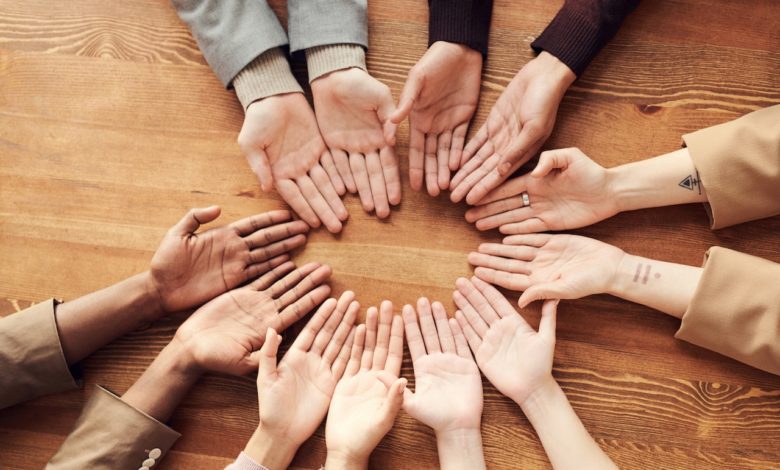
Diversity Dialogue – The Global Dance of Job Interviews
A firm handshake, steady eye contact, and a confident introduction – these might be the prescribed behaviors in one culture’s job interview playbook. But what about those corners of the globe where a firm handshake is considered too aggressive, direct eye contact disrespectful, and a bold self-introduction is simply distasteful?
Friends, we find ourselves navigating the globe tonight, not in the physical sense, but through the lenses of cultural idiosyncrasies, particularly as they manifest in job interviews. In our interconnected world where a Zoom call can transport us to a boardroom across the ocean, understanding cultural nuances has never been more critical. And so, we set sail on an exploration of cultural cues and conventions in the context of job interviews.
In their seminal book, “The Culture Map,” authors Erin Meyer and Reed Hastings give us an inkling of how the notion of the “right” interview technique could diverge dramatically across cultural lines. For instance, in American culture, self-promotion is often appreciated, even expected. However, a Japanese interviewee might find such overt displays of individual achievement uncomfortable and inappropriate, favoring group achievements over personal ones.
Digging deeper, consider the impact of the cultural dimension of ‘power distance,’ famously expounded by social psychologist Geert Hofstede. Countries with high power distance (like Malaysia or Guatemala) show a deep respect for hierarchical structures, expecting deference to authority in a job interview. Conversely, in low power distance cultures (think Denmark or New Zealand), a conversational, even informal interview approach could be the norm, with the applicant addressing the interviewer on a first-name basis.
“Diversity is the vibrant palette that paints our collective success. It’s through our varied hues of experiences and perspectives that we truly flourish.”
Imagine interviewing in Finland, where silence is revered as an opportunity for reflection and thoughtfulness. Contrast this with a job interview in Brazil, where lively discussion and casual banter could reflect well on your ability to fit into a team. It’s the “same planet, different worlds” phenomenon in action.
Speaking to the Guardian, Robert Gibson, an intercultural training expert, emphasized the significance of understanding these cultural nuances, stating, “When you are doing business with people, understanding their culture will mean that you don’t get off on the wrong foot with them and blow your chances.” These words hold just as true, if not more, in the context of job interviews.
The key is to remain open and adaptable, striving to understand the cultural norms of the people with whom you interact. Data from a recent study by Boston Consulting Group suggests that companies with more diverse leadership teams have 19% higher revenue due to innovation. This statistic demonstrates the potential economic value of embracing a multicultural perspective, both in the workforce and in the hiring process.
As we continue this exploration, let’s delve deeper into some real-life anecdotes. An HR manager from a multinational corporation once shared an enlightening story. During a recruitment drive in Korea, an American recruiter was perplexed by the reticence of the interviewees. They seemed to hesitate before answering questions, often prefacing their responses with “I’m not sure, but…”. The recruiter initially mistook this for a lack of confidence or indecisiveness. However, a local HR colleague clarified that in Korean culture, such phrases are a display of humility and respect, not an indication of doubt.
Similarly, social psychologist Michele Gelfand, in her book “Rule Makers, Rule Breakers,” elaborates on the concept of ‘tight’ and ‘loose’ cultures. She explains that some societies have very clear, rigid social norms (tight), while others are more permissive and open to interpretation (loose). This cultural understanding can prove to be a game-changer during interviews. For instance, a candidate from a ‘tight’ culture, such as Singapore or Germany, might stick strictly to the agenda, while someone from a ‘loose’ culture, like Israel or the Netherlands, might freely express their thoughts, ideas, and questions, even if they deviate from the interview script.
Indeed, understanding these cultural nuances can also help interviewers adapt their style and approach, thereby facilitating a more open and effective dialogue. As Shira Harrington, a recruitment specialist and founder of Purposeful Hire, aptly puts it, “When we make an effort to understand and respect cultural differences, we lay the foundation for a more inclusive and productive workplace.”
Moreover, research underscores the value of this approach. A study by the McKinsey Global Institute revealed that ethnically diverse companies are 35% more likely to outperform their counterparts. This underscores the importance of fostering a multicultural, inclusive environment from the onset – the hiring process.
In closing, the art of interviewing is no longer bound by the tenets of one’s own culture. As global citizens in an ever-shrinking world, we must widen our horizons and embrace cultural differences. By recognizing the unique facets of each culture, we can transform job interviews from a series of scripted questions and rehearsed answers into a genuine conversation, a meaningful dialogue, an enriching cultural exchange.
Understanding cultural nuances in job interviews is not just a ‘nice-to-have.’ It’s an essential tool for navigating our increasingly interconnected world, where each Zoom call or Microsoft Teams meeting can become a cultural exchange. It’s an opportunity for us all to grow and learn, embracing the beautiful diversity that defines the human race. It’s time to consider a global perspective, not as an add-on but as a fundamental facet of the hiring process.
The cultural world tour may have concluded, but the journey towards cultural competence is an ongoing one. So, buckle up, stay curious, and remember – every conversation is a chance to learn, grow, and celebrate our beautiful diversity.
Remember, friends, the world is filled with a multitude of cultures, each with its unique colors and rhythms. So, let’s approach every interaction, every job interview, with the curiosity of an explorer, the sensitivity of a diplomat, and the respect of a global citizen. And that, dear readers, is what the future of recruitment should look like.
And so, friends, as we continue our journey in this global arena, let’s remember to appreciate and respect our diversity. Let’s make every job interview a step towards a more inclusive, understanding world. And that, dear readers, is not just the future of recruitment – it’s the future of work, the future of global collaboration, the future of humanity itself.



